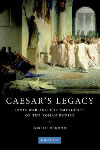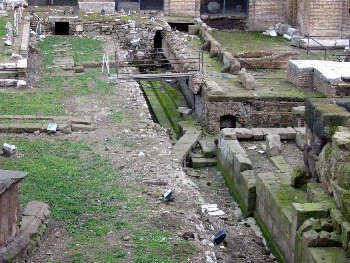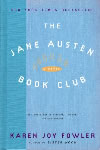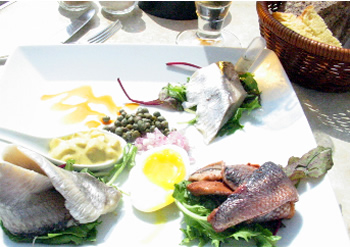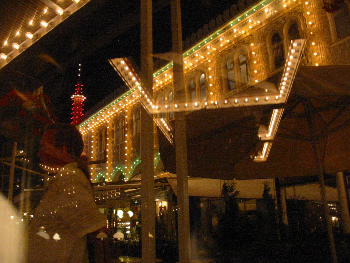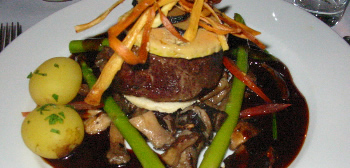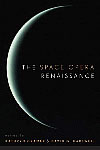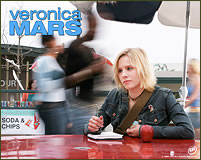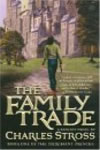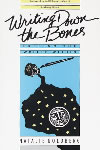It makes sense that, when I finally tried tournedos Rossini, it was at an amusement park.
I first read about Tivoli Gardens in the context of War and THE vanished world. Exodus, I think, or maybe War and Remembrance. I can't check, because the Marriott wants $30/day for internet. But Tivoli for me was an image of a lost world. I wasn't expecting much.
It's really surprisingly good. Just about what you'd expect, if you took the 18th-century pleasure garden and added electricity.
I hadn't expected Tivoli to be a place you go at night. But there were lots of kids. Great family portraits: the oh-so-adult nymphet sitting beside the bored younger brother, sitting beside the astonished 6-year-old. (I thought Danes still kept farmer's hours, also known as American meal times?) And I'd never imagined that it would be packed with white-tablecloth restaurants serving things like fjord shrimp and tournedos Rossini.
And you know, it was pretty good. The meat was lean European beef, and so the kitchen cooked it very, very gently. But, given the available materials, that's probably the right approach. The foie gras was lovely. I think that the truffles were summer truffles, alas, but this is summer and this is Denmark, and I believe that all Danish truffles are summer truffles. (I was holding out a sneaking hope that they'd be New Zealand truffles or something like that, but no luck.) The chef compensated by adding a nice sauté of mixed mushrooms.
I asked for adivce choosing a glass of wine to go with the fjord shrimp. I thought this a sensible thing to ask: surely, lots of visitors to Tivoli aren't exactly sure what wine goes well with fjord shrimp? After all, I ordered the fjord shrimp because, back where I come from, we have no fjord shrimp, or fjords.
The waiter thought I was bats: 'Which wine do you feel like?' Not the answer I expected, but perhaps a wise answer anyway. Zen and the art of table service. Another waiter kept sprinting across the balcony, trying to stay out of the drizzle, and causing various sorts of mild havoc, which reminded me of the passage from The Making of a Chef where the CIA students are taught never, ever, to run in the front of the house: it makes the patrons worry that the place is on fire.
It began to pour as I finished, and having been up pretty much continuously for 36 hours, after two mostly-white nights this week (hi Mom!), I didn't stay for either of the concerts or for a peek at Alvin Ailey. (Alvin Ailey in an amusement park? Nice!)
